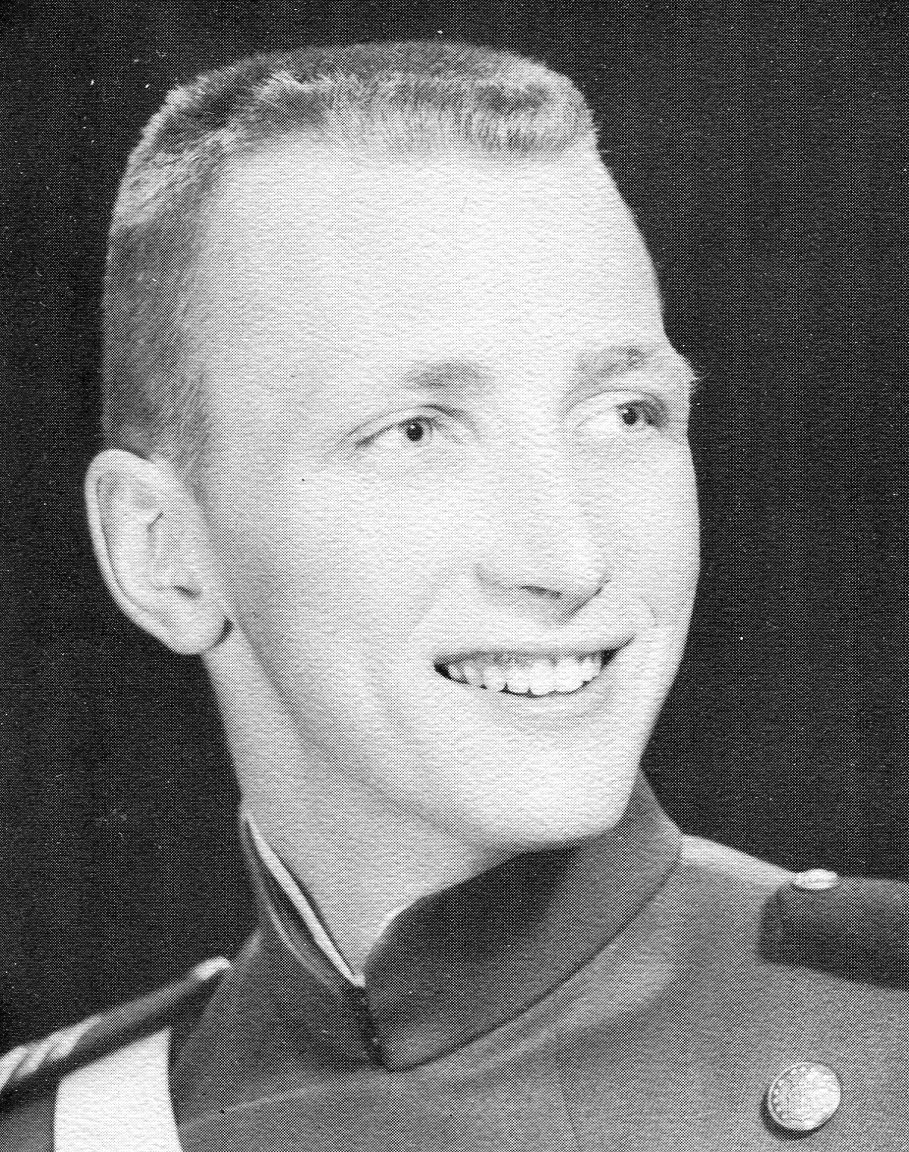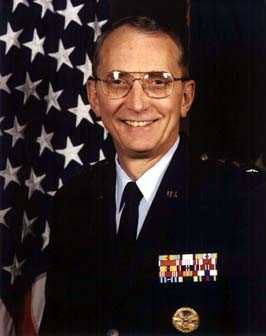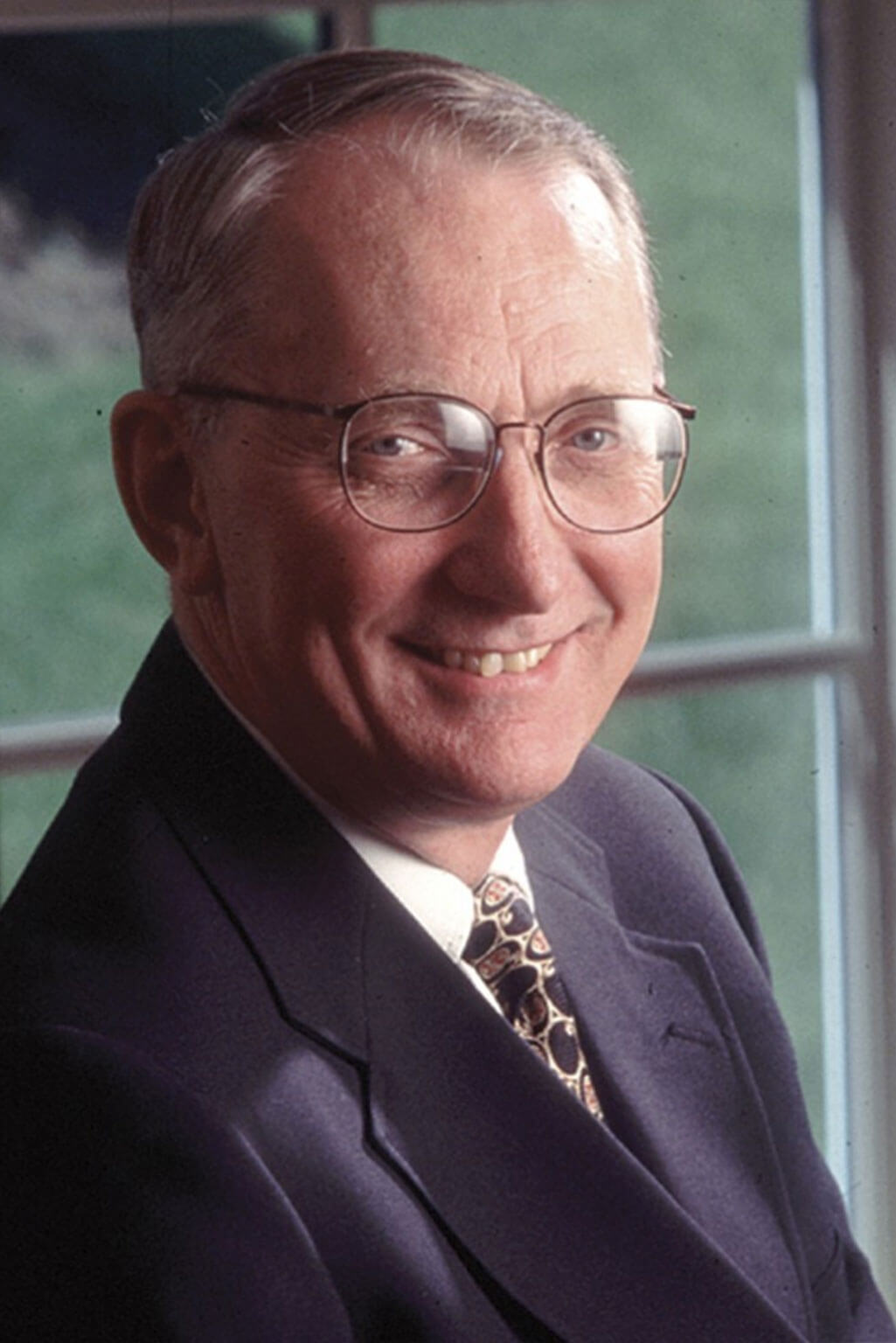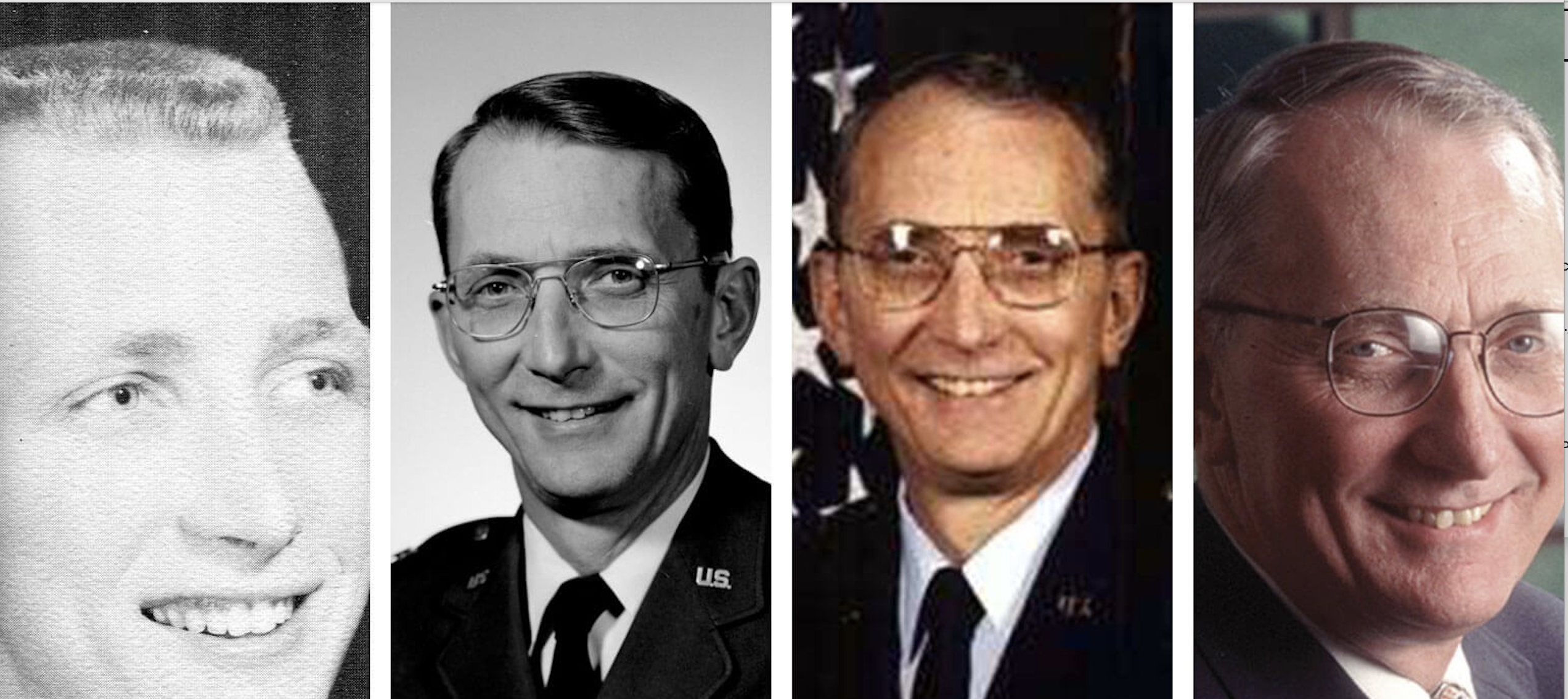News: Remembering Lt. Gen. (Ret.) Ervin Rokke '62
The U.S. Air Force Academy Association & Foundation mourns the loss of Lt. Gen. (Ret.) Ervin J. Rokke ’62, who passed away on Sept. 5, 2025. Gen. Rokke stood out in every way — from his commanding height to his extraordinary intellect.
Over seven decades, Gen. Rokke served the nation with distinction. He left a lasting impact in intelligence, diplomacy, education and character development.
While his legendary service abroad — especially in Moscow during the Soviet Union’s collapse — remains well known, his most enduring legacy may be found at the Air Force Academy.

Gen. Rokke became the first USAFA graduate to assume senior leadership roles on the faculty.
On Aug. 28, 1976, after earning his master’s degree and Ph.D. from Harvard University, then-Lt. Col. Rokke became the Academy’s 32nd permanent professor — and the first graduate to receive the title. One year later, he became head of the Department of Political Science.
On July 1, 1983, then-Col. Rokke became the first Academy graduate to serve as dean of the faculty. Just 13 days later, he earned promotion to brigadier general.
Unlike previous deans who ended their careers in the role, Gen. Rokke chose to return to the operational Air Force. In November 1986, he stepped down as dean and gave up his general officer rank to become the defense attaché in Moscow — the only permanent professor ever to make such a move. In 1988, the Air Force promoted him back to general officer. He later became president of the National Defense University in Washington, D.C., retiring as a lieutenant general in 1997.

After retirement, he continued serving in education, leading Moravian College in Bethlehem, Pennsylvania, as president for nine years. He then returned to Colorado Springs.
Soon after his return, Gen. Rokke reengaged with the Academy. In July 2007, the USAFA Endowment — now the Air Force Academy Foundation — was founded. Just three months later, it made its first major gift offer to the Academy: funding the inaugural year of the General Malham Wakin Character Chair. Gen. Rokke fittingly became the first person to hold the position.
That role marked the start of an 18-year commitment to character development and the Center for Character and Leadership Development.
In April 2008, the Academy honored Gen. Rokke and longtime San Antonio Spurs head coach Gregg Popovich ’70 with the 2007 Distinguished Graduate Award.
In 2009, while continuing his CCLD work, Gen. Rokke became the first president of the USAFA Endowment (now known as the Air Force Academy Foundation).
Bart Holaday ’65, chairman of the board at the time, remembers that “Erv stepped up to be the first president of the Endowment when we had essentially only an idea — practically no money and only Mark Hille as our first employee. He did a superb job with his leadership of this infant organization as he did with all things.
“Erv was exceptionally smart and focused always on what mattered, never letting his ego interfere with achieving the shared objectives,” Holaday continues. “He had a marvelous ability not only to understand complex issues and situations but to see people clearly—both good and bad—but accept them for who they were and work with them to accomplish important things without wasting time judging them. In so many ways, knowing and working with Erv made me a better person. So many of us are very deeply indebted to him for all he did for our country, the Academy and so many of us.”

Notably, the Mark Hille ’97 that Mr. Holaday mentioned is now the president and CEO of the Association of Graduates and the Air Force Academy Foundation, both united under a shared vision and mission as the Association & Foundation. Hille shared some of his memories of Gen. Rokke and the USAFA Endowment’s early days: “Gen. Rokke’s service as Endowment president effectively emerged as he was helping [then-Superintendent] Gen. Regni create the CCLD building. Once that design was complete, the Endowment asked Gen. Rokke if he might be interested in helping the Endowment assemble the support for the concept. He was part-time, but you wouldn’t have known it. The small staff we had at the time put him to work giving speeches, meeting donors, writing papers…etc., on top of steering and mentoring the staff in our daily work.”
In A History of the Permanent Professors of the Air Force Academy, Brig. Gens. (Ret.) James H. Head and Erlind G. Royer refer to Polaris Hall as well, writing that “Erv provided the vision and energy that culminated in the dedication in 2016 of the building that is the new home for the Center for Character and Leadership Development.”
While creating a physical space for character development mattered, Gen. Rokke made perhaps his greatest contributions by shaping the programs and ideas that filled it.
Lt. Gen. (Ret.) Chris Miller ’80, current CEO of the Academy Research and Development Institute and longtime colleague of Gen. Rokke in the CCLD, summarized Gen. Rokke’s value to the center and the Academy, saying, “Erv Rokke was a quiet, forceful giant among USAFA’s thought leaders. From the time I met him as a cadet, through our time serving together in CCLD, it was clear how passionately he was devoted to shaping our understanding of the changing nature of conflict, even as he was deeply committed to the unchanging core values of our Academy.
“His military career,” Gen. Miller continues, “especially his time as America’s defense attaché to the Soviet Union, literally affected the course of the Cold War. He was a driving force behind character development and sustaining our focus on honor, and one of the key visionaries behind creation of Polaris Hall and the Institute for Future Conflict. The whiteboard in his CCLD office always overflowed with the ideas he and his cadet proteges debated intently. Among many other honors, the Academy Research and Development Institute endowed the Rokke-Simon Chair in the political science department he led in the 1970s as a permanent testament to his intellect, leadership and devotion to the Long Blue Line.”
No tribute to character would be complete without reflections from Chief Master Sgt. (Ret.) Bob Vasquez, who spent nearly two decades in the CCLD, including time as the program director of USAFA Freshman Character and Leadership Development. The Honorary AOG Member had a long-time program — essentially a podcast before podcasts were cool — on KAFA, the Academy’s radio station, entitled Character Matters, during which he interviewed cadets and senior leaders on the topic of character. Chief Vasquez recently expressed his reverence for Gen. Rokke, saying, “He was the epitome of the term ‘a gentleman and a scholar.’ He was a learned warrior leader who always took time out of his busy schedule to help me grow. He did it in such a courteous and kindly manner that I always looked forward to finding him in his office so that I could bother him to empower me with a bit more wisdom and knowledge. I’ve missed our short chats since my retirement. God bless you, Dr. Rokke.”
Another officer who worked extensively with Gen. Rokke at the CCLD was Col. (Ret.) Tom Berry ’71, former deputy director, Center for Character and Leadership Development. He echoes many of the same sentiments, saying, “Gen. Rokke was the quintessential officer, scholar and role model to everyone who passed through the Center for Character and Leadership Development doors. His smile was infectious and heartwarming. In his senior scholar role Dr. Rokke reminded us that every cadet at the Academy was serious about having a positive growth experience, and it was our staff and faculty challenge to exceed their expectations. Anything else was unacceptable.
“When Dr. Rokke led our center’s monthly brownbag lunches, the topics were as varied as his experiences. One month it could be on the effects of the break-up of the Soviet Union on the personality of his friend, Marshall Akhromeyev, Soviet WWII hero. The next month: how he solved the student parking problem at Moravian College. The next: why we needed a professional development seminar series co-hosted by the center and the faculty departments focused on moral and leadership development. He never stopped thinking. He never stopped challenging us to make our center programs and ourselves better.
“He was always our mentor and our friend,” Col. Berry concludes.

